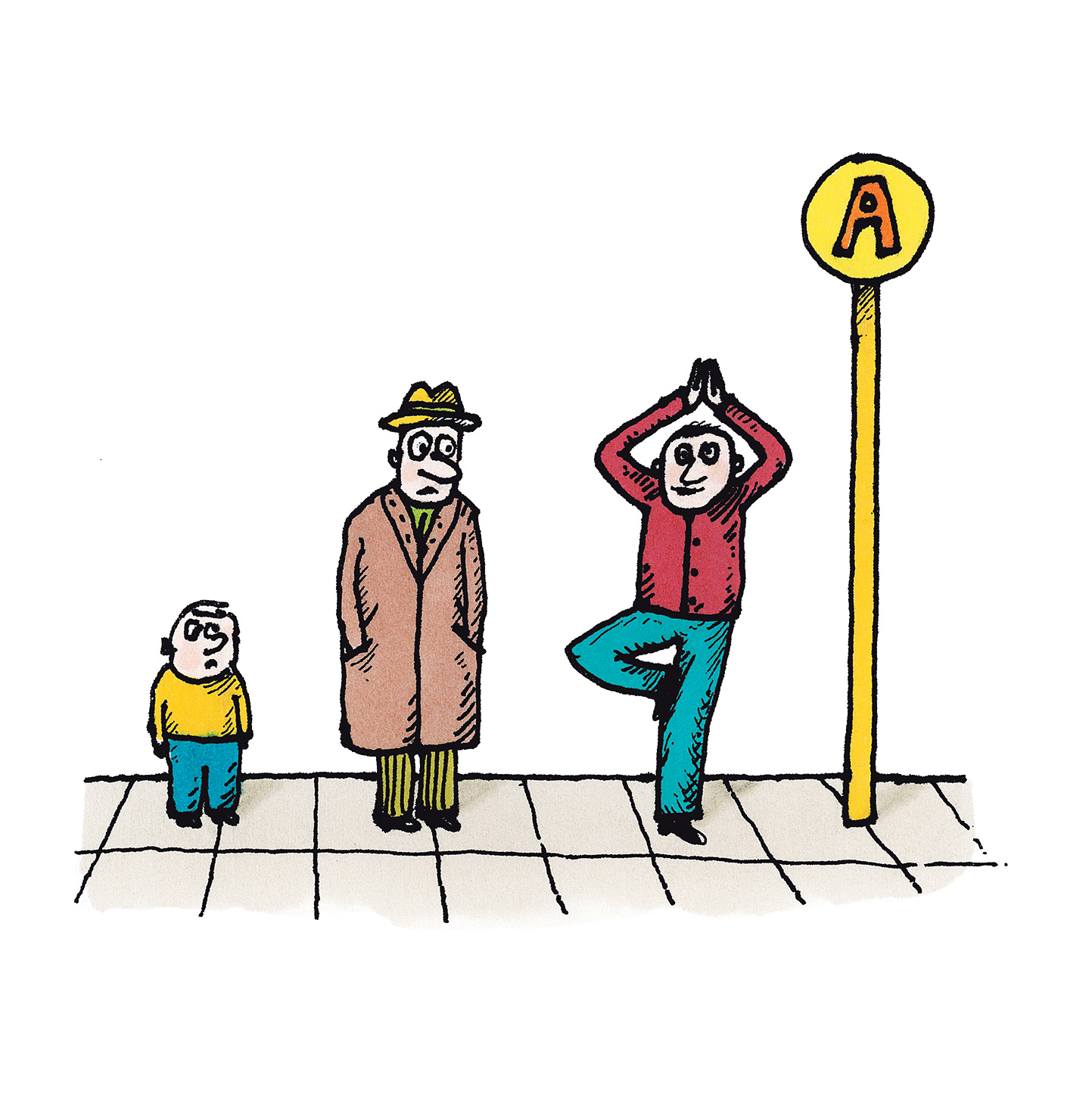
We find it easier to remember unpleasant events than nice ones, we notice an angry face more easily than a happy one, we are quicker to dislike something than to like it. This is because our brain works like it did thousands of years ago. During the French Revolution, Marie Antoinette allegedly told the hungry Parisians to ‘eat cake’, if they did not have bread (depending on the version of the story, she might also have been offering them ‘brioche’, i.e. sweet buns). It was supposed to be an argument for the French queen’s inanity and her complete disconnection from reality, which soon after cost her her head. Even though it is still unclear whether she even uttered the phrase in the first place – as through the years it has been ascribed to other rulers as well – the quotation (mainly because of Jean-Jacques Rousseau) has become permanently associated with Marie Antoinette, characterizing her as a rotten and not particularly bright aristocrat. Even though this year marks 228 years since the famous Austrian’s death, no historian has managed to fix her reputation.
The story demonstrates a certain characteristic psychological mechanism – we find it easier to remember something bad than something good. Experts say that the human brain in general tends to focus on negative experiences, anger and the wrongs we have suffered, while overlooking positive experiences. Why is this the case? We should turn to evolution for answers.
Taught to fear
As the American neuropsychologist Rick Hanson observes in his book Hardwiring Happiness: The New Brain Science of Contentment, Calm, and Confidence, our brain evolved to learn quickly and draw conclusions from bad experiences. This approach had an adaptative function, as concentrating on dangers helped our ancestors survive. The crucial role was played by fear. The fear of being attacked and eaten by a predator, the fear of other, hostile groups of people, an encounter with whom could end tragically. Research by Samuel Bowles and Jung-Kyoo Choi published in Science shows that even though some human groups could interact with each other peacefully, on average one in eight men was still killed as a result of conflicts between groups. For comparison, statistics show that across the 20th century, one in 100 men was killed in war.
“Our ancestors could make two kinds of mistakes: (1) thinking there was a tiger in the bushes when there wasn’t one, and (2) thinking there was no tiger in the bushes when there actually was one. The cost of the first mistake was needless anxiety, while the cost of the second one was death,” Hanson writes. “Consequently, we evolved to make the first mistake a thousand times to avoid making the second mistake even once.”
This way, anxiety has become virtually impressed into our DNA. “It is believed that anxiety, as an emotion or a mechanism that enabled us to survive as a species, is encoded in us,” confirms Karol Grabowski, a psychiatrist and cognitive-behavioural psychotherapist from Gdańsk Medical University.
It is assumed that anxiety’s function was to warn of danger. Anxiety’s evolutionary role was about teaching humans to code certain stimuli as dangers, in order to survive. This knowledge was passed down from generation to generation. Even though today humans do not have to fight for survival like they did thousands of years ago, they still fear the ‘tiger’ lurking in the dark. The human brain is still more sensitive to potential dangers and responds more intensely to unpleasant than to pleasant situations.
Scientists argue that the human brain has a knack for learning from bad experiences. As Hanson writes, this is why we notice negative stimuli more easily than positive ones and usually learn from painful, not pleasant experiences, as well as notice an angry face more easily than a happy one. Research by British neuropsychologists has shown that people react to angry faces even when they are not aware of it. Scientists have found out that, statistically, in a close relationship one needs at least five positive interactions to counterbalance a single bad one. We feel safe only when the number of pleasant moments spent together is at least three times greater than the number of unpleasant ones.
“In relationships, trust is easy to lose and hard to regain. Something bad about a person is better remembered than something good, which is why negative ads dominate political campaigns,” writes Hanson in his book. Smear campaigns stick in the mind much more easily than politicians’ merits. This is why politicians so often dig up their opponents’ past mistakes, accuse them of dishonesty or even the wrong birthplace. During the presidential campaign of 2008, Donald Trump, at the time still only a businessman supporting the Republicans, suggested in public that Barack Obama was not born in the US, but in Kenya, which would make him ineligible to run in the US presidential elections. Even though the White House later presented Obama’s birth certificate, a portion of American voters still believe the document to be fake. Similarly, the story about ‘a grandfather in the Wehrmacht’, used by politician and journalist Jacek Kurski to discredit Donald Tusk, still haunts the former Polish prime minister.
The mechanism is very efficiently used not only by electoral staff, but also by the media. The majority of information programmes start with news on calamities or murders because they are more spectacular and draw more viewers than news on somebody’s successes. According to Grabowski, what we remember is connected to the emotions that accompany the experience in question. These are not always negative emotions, although they usually give us a bigger jolt. “Usually, if the emotional stimulus is strong enough, remembering is easier, and the memory more durable. The emotional stimulus underscores the meaning of the situation or experience accompanied by the emotions,” the psychiatrist explains.
Researchers say that anxiety in particular is a stimulating emotion that is hard to forget. Its role is to motivate us to act, to stimulate the body; it is associated with potential danger, and the human brain is programmed to remember the anxiety stimulus and to avoid its source. From an evolutionary perspective, this is what enabled us to survive.
“I can’t say, though, that anxiety is the only emotion we remember. If an event is associated with huge joy, we will also remember it better than something that is emotionally indifferent,” Grabowski continues. He believes that we find it easier to remember negative stimuli because we treat the positive ones as the norm, while situations associated with sadness, anxiety, anger are not standard, which is why they have a stronger effect on us.
“Wash your hands, there’s germs everywhere”
Every one of us experiences anxiety, scientists say. The problem is that, while in some people it takes the form of carefulness or mild vigilance, in others it manifests itself as obsession and panic. It is not good when we start seeing reality through the perspective of anxiety. For instance, imagine an ordinary, rather good, day. Everything is going smoothly, until your boss makes a critical remark about you. If you have a tendency to view the world in dark colours, the boss’s comment can mean a sleepless night, throughout which you torture yourself with your boss’s remark. People prone to anxiety respond by switching on the mechanism of selective attention and so-called tunnel vision, i.e. paying attention only to what is negative.
“The entire day was neutral, but one unpleasant thing happened and now this is all I remember from the whole day, and I am judging the day on this basis,” Grabowski explains. “Those who distort reality in this way live their lives convinced that negative events are bound to happen and are unavoidable, whereas they do not expect good things to happen to them.”
Those prone to anxious behaviour more easily pick up on anxiety stimuli in their environment. At some point, they begin to scan reality for nothing but possible threats and sources of danger. For many, the list of threats lurking in the outside world can be endless. Is everyone likely to behave like this? Grabowski explains that potentially everyone could distort reality in this way, yet not everyone does. We give every situation a particular meaning and ‘decide’ how we are going perceive the event. As a result, the same stimulus can be interpreted very differently by different people.
“One person may respond to their boss’s critical remark with anxiety, because they will think: ‘OK, if my boss criticizes me now, it means he or she might want to fire me, they are not happy with my work, I will probably lose my job and I won’t be able to pay my rent’, after which anxiety appears, and it just snowballs from there. Someone else might feel sad: ‘The boss must think I am useless, my work is worthless and I just can’t do anything right’, while another person might feel angry: ‘How dare he criticize me?! How can he talk to me like that? I do everything just right!’ The same event can be interpreted in different ways depending on our view of ourselves, the world, other people. Our emotions are simply an adequate response to the interpretation,” Grabowski explains.
How strong the anxiety manifests itself depends on many factors. Certainly the environment we grew up in plays a major part. “The most important models for children are parents,” says Grabowski. “If a child grows up in a family where the parents have a high level of anxiety, where they watch out for all kinds of threats and talk about them, then the child learns from them that the world is a dangerous place and the threats are real. We are talking about children who keep hearing messages like: ‘Stop jumping, you’ll fall down’, ‘You need to walk slowly, you don’t want to trip and break your leg’, ‘Put your hat on, you’ll catch a cold’, ‘Stay in, it’s cold and you’ll catch something’, ‘Wash your hands, there’s germs everywhere’, ‘Have some rest, you’re all flushed and out of breath’. Because of so many dangers, the poor child hardly makes it through the day! No wonder the kid is scared. But on a serious note, it is estimated that 40% of people with anxiety disorders had overprotective parents. Many such people go through life convinced that it is dangerous.” The good news is that, according to experts, we can change this set-up and learn to control our anxiety.
Take a close look at your anxiety
Rick Hanson compares the human mind to a garden where weeds and flowers grow. We can just observe it without changing anything, but we can also root the weeds out, i.e. throw everything negative out of our minds, strengthening our position.
“The brain is the organ that learns, so it is designed to be changed by your experiences. It still amazes me but it’s true: Whatever we repeatedly sense and feel and want and think is slowly but surely sculpting neural structure. […] This is what scientists call experience-dependent neuroplasticity,” Hanson writes. Research conducted on London taxi drivers has shown that in their brains the region responsible for visual-spatial memory is significantly better-developed, whereas people who meditate develop structures responsible for attention, among other things. According to Hanson, this proves that we can build new neuronal connections just like we build muscle tissue.
Psychotherapists point to the importance of mindfulness training (i.e. focusing on the ‘here and now’) in the treatment of anxiety disorders. “Mindfulness means watching what is happening around us. You observe your reality and try to take it as it is. You do not judge it right away, do not assume it is going to be ‘a certain way’, you just accept it. Only later do you find your place in it,” Karol Grabowski explains. Mindfulness training is not about seeing only positive things, but about accepting that our reality consists of various stimuli (both good and bad ones) and learning to focus only on those selected – in this case, the negative ones.
The psychiatrist points out that the important thing about mindfulness training is not to assume that an experience is absolutely good or bad, because it is something we cannot know. To assess reality, it is always a good idea to take a close look at it first and see what is hidden there. We might see that something that seemed threatening and negative is not like this after all.
“The boss criticizing me does not mean he or she is going to fire me. Perhaps, if I notice that in the morning the boss also commended me, moreover, my co-workers gave me positive feedback, then the reality might turn out to be less threatening after all? It is easier to find ourselves in a reality we actually have got to know, than in one from which we have only selected a sample. Because if we only take the anxiety-inducing sample, then we will adjust to it exclusively. In other words: we will not act according to reality, but according to our image thereof,” Grabowski concludes.
In the spirit of mindfulness, we open to everything happening around us – we do not judge right away, but try get to know the circumstances first, and only then do we adjust to reality. According to specialists, the goal is not to totally get rid of anxiety from your life. On the contrary. Llike thousands of years ago, anxiety still plays an important part: it provides information and warning signals. Therefore, we should not suppress it forcefully or pretend it is not there.
Translated from the Polish by Adam Zdrodowski










